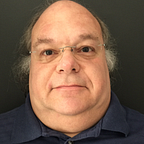The Kennedy School Racket
Why Chelsea Manning’s Fellowship Was Withdrawn
When Harvard’s Kennedy School withdrew the fellowship it had offered to Chelsea Manning, it wasn’t because the CIA Director cancelled a speech. Instead, a Manning fellowship struck at the heart of the Kennedy School’s strength, a network of relationships that give its students a distinct advantage and that makes the school an extension of the national security state.
Manning’s fellowship was offered by the Kennedy School’s Institute of Politics (IOP). The IOP is the high profile part of the school, inviting recent political figures to campus for lectures, seminars and other activities. Shortly after the presidential election, for example, they brought together managers of the Clinton and Trump campaign for panel discussions that garnered major headlines.
There’s another organization at the Kennedy School that’s lesser known, The Belfer Center for Science and International Affairs. The Belfer Center describes itself as:
the hub of Harvard Kennedy School’s research, teaching, and training in international security and diplomacy, environmental and resource issues, and science and technology policy.
It brags that, four years in a row, it has been ranked the #1 university affiliated research center in the world. The Belfer Center is large, listing 429 staff, faculty, affiliates, and fellows in its directory. The Center’s Director is Ash Carter, former Secretary of Defense. The Co-Director is Eric Rosenbach, former Chief of Staff to Carter and former Assistant Secretary of Defense for Cybersecurity. Active military officers rotate through the Belfer Center to study topics such as nuclear policy, counter-terrorism, and chemical and biological weapons control. Belfer also has fellows, many of who are former senior national security officials. Former CIA Director and admitted mishandler of classified information David Petraeus is a fellow, as is former White House Homeland Security Advisor Lisa Monaco. Or, to put it another way, the Belfer Center has a number of staff or affiliates whose institutional roles, the reason they are at the Center, would have been to prevent a Chelsea Manning from happening and, failing that, hunt, prosecute and convict the perpetrator.
There was a time when the CIA would fund centers like Belfer covertly. Those days, as far as we know, have ended. Belfer operates in the open. Many of its lectures and events are open to the public. If you want to listen to an active Air Force officer explain how our strategic nuclear forces are structured, Belfer lectures are for you. At many of them, if you arrive early enough, they’ll even feed you lunch. Belfer staff are, to a person, polite and gracious, willing to talk to outsiders and answer questions, happy to have you there. They view public events as a continuation, in a different venue, of their public service.
If you go to the right talks, you’ll hear Kennedy School graduates who are now former government officials talk about how the Kennedy School network helped their career. They’ll talk about the single phone call that got them a job after they staked their careers on a losing candidate, or how, when a former officemate got a senior position, they were invited along. You’ll hear them tell current students to pay attention to this practical wisdom on how their Kennedy School education works in the real world.
This is, of course, the personification of the “deep state.” To the extent there has been a bipartisan consensus on foreign and military policy, it has been forged and maintained in the offices of places like the Belfer Center. In their hallways, they prize competence and dedication over party. It is, in David Halberstam’s ironic phrase describing the advisors of the school’s namesake who got us into Vietnam, about being the best and the brightest. While party differences might not matter, giving a fellowship to someone convicted of stealing government secrets certainly would.
With Donald Trump’s victory in November, the Belfer Center has assumed another role. With Carter and Rosenbach on board, it is an embryonic Department of Defense in exile. Having failed to defend the country against a cyber attack from a foreign power, they want a do-over. Thus, with the chutzpah of Harvard, they’ve created a “Defending Digital Democracy” project, intended to build cybersecurity resources for future campaigns and understand the propaganda mechanisms used in 2016. They’ve recruited the participation of Google and Facebook, managers of the Clinton and Romney campaigns and former intelligence officials and fully expect to be saving democracy for the rest of us.
This is, for Harvard, a great business to be in. Unlike admitting Jared Kushner, it’s not even one in which you have to lower your standards. You jump start your students’ careers and, for your troubles, if you decide to save democracy, everyone asks how they can help. For Harvard, the question had to be this. When you’ve got a racket like this going, who in their right mind would risk disrupting it for a fellowship for Chelsea Manning?
Disclaimer: The author has eaten Belfer Center lunches.
